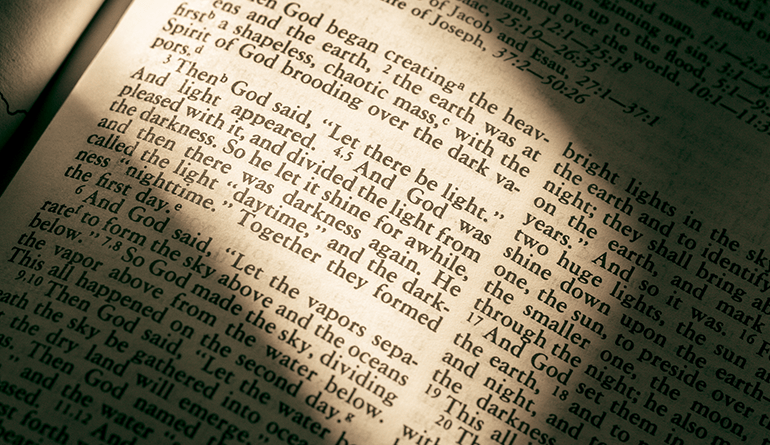The Old Testament is given by divine inspiration, validated by the Apostles and the New Testament writings, and confirmed by Jesus Christ Himself. Click here to find out why true Christians cannot preach or practice true Christianity without teaching from the Old Testament as well as from the New Testament.
The Old Testament consists of the inspired writings of God’s servants who lived before Jesus Christ’s birth, death, and resurrection. The New Testament writings do not disparage the Old Testament; actually, they validate it. The Apostle Peter, for example, described the Old Testament as divinely inspired—and not subject to anyone’s private interpretation (2 Peter 1:20–21).
The Apostle Paul reminded the Evangelist Timothy that “from childhood you have known the Holy Scriptures, which are able to make you wise for salvation through faith which is in Christ Jesus. All Scripture is given by inspiration of God, and is profitable for doctrine, for reproof, for correction, for instruction in righteousness” (2 Timothy 3:15–16). Those “Holy Scriptures”—able to make someone wise for salvation—were the Old Testament books.
Jesus Christ Himself said, “It is written, ‘Man shall not live by bread alone, but by every word that proceeds from the mouth of God’” (Matthew 4:4; Luke 4:4). Jesus was quoting Deuteronomy 8:3, and was referring to God’s word from Genesis to Malachi—the canonized Bible of His day.
The New Testament shows that Jesus accepted Old Testament accounts as historically accurate, including those of Adam and Eve (Matthew 19:3–4), Abel (Matthew 23:35), the great flood (Luke 17:26–27), Sodom and Gomorrah (Luke 17:28–29), and Jonah (Matthew 12:40). Modern Bible critics often question and malign these Old Testament accounts—but Jesus Christ directly validated them with His words. We should also note Jesus’ reference to Moses’ writings—which the Jews understood as the first five books of the Old Testament. Jesus admonished His critics, “For if you believed Moses, you would believe Me; for he wrote about Me. But if you do not believe his writings, how will you believe My words?” (John 5:46–47). Without accepting Moses’ writings, one cannot have real faith and belief in Jesus Christ.
Along with history, fulfilled prophecy also stands as a powerful witness to the authenticity of the Old Testament. Throughout the Old Testament, many references were written that predicted Christ’s first coming—predictions that proved completely accurate. For us, today, the many prophecies of His second coming— following specific end-time events foretold in Scripture—are filled with inspired relevance. To disregard the Old Testament would lead one to reject much of the vital truth about Jesus Christ, His message, and even God’s Church, which is built on the “foundation of the apostles and prophets, Jesus Christ Himself being the chief cornerstone” (Ephesians 2:19–20).
After Christ’s resurrection, He spent time with His disciples to help them understand what had occurred. Notice which part of the Bible He used: “And beginning at Moses and all the Prophets, He expounded to them in all the Scriptures the things concerning Himself” (Luke 24:27). This also included “the Psalms” (v. 44).
At the same time, was Jesus teaching His disciples to observe the ceremonial laws that His sacrifice had replaced? No—as Hebrews 10 explains, the Old Testament ceremonial laws are not required of Christians. As Isaiah taught, the Messiah would come to “magnify the law” (Isaiah 42:21, MEV). Christ said that He came to fulfill the law—not to abolish it. He plainly taught His followers to keep the Ten Commandments (Matthew 5:17–20; Luke 18:18–20). He made this possible by giving Christians the Holy Spirit so that they could have Christ’s faith living within them (Galatians 2:20).
True Christians cannot preach or practice true Christianity without teaching from the Old Testament as well as from the New Testament. The Old Testament is given by divine inspiration, validated by the Apostles and the New Testament writings, and confirmed by Jesus Christ Himself. For this reason, the Living Church of God strives “to declare to you the whole counsel of God” (Acts 20:27).
